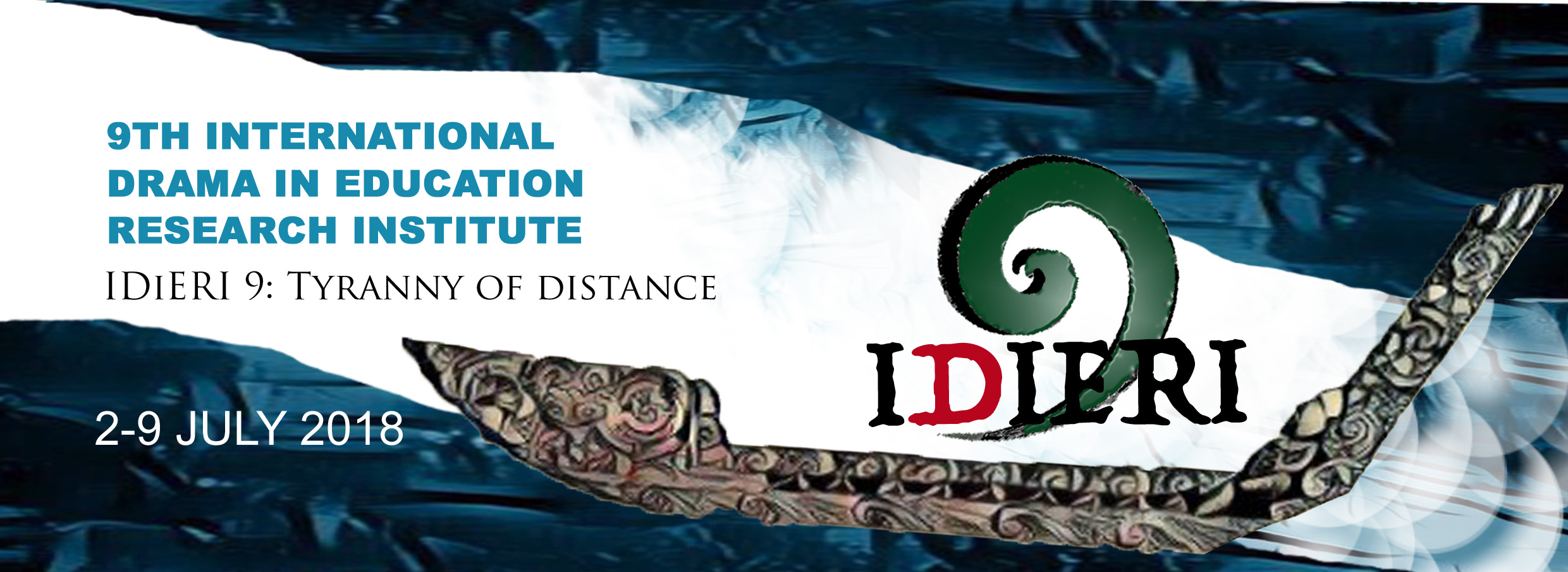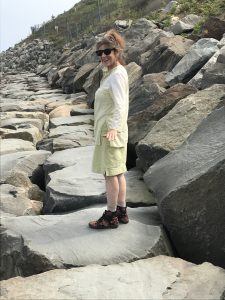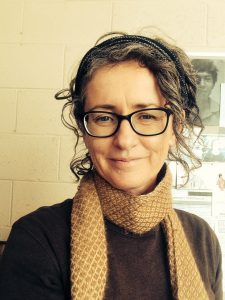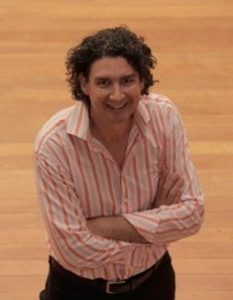Jan Cohen-Cruz
Notes from an Autumn Gardener: Reflections on Theater and Distance
Two photographs bookend my talk. The first, an 8×10 inch “head shot,” which actors staple to their resume and leave with casting agents, was taken when I was 18 years old. It’s as close to glamorous as I ever got, a hair piece thickening my long dark waves, my eyebrows plucked, my expression thoughtful yet coy. I believed that a life in the theater had to be New York City-centered and the only route there required conforming to particular looks and types.
The second, from 2017, is a set of blown-up portraits of diverse residents of my small hometown, projected on the main railroad station as part of an event thanking the community for 4 years of interviews there that were a source of the play SWEAT, which won the Pulitzer for Drama. These two photos mark the distance that US theater traveled over 60 years, changes in the times that its twists and turns reflect, and the unexpected journey that I and others of my generation undertook.
The content of my talk is a reflection on that distance in the autumn of my life. The form is a rejection of the tyranny of distance imposed on academics regarding the inclusion of personal aspects of our lives in our professional research.
Jan edited Radical Street Performance, co-edited, with Mady Schutzman, Playing Boal: Theatre, Therapy, Activism and A Boal Companion; and wrote Local Acts: Community‑Based Performance in the US, Engaging Performance: Theatre as Call and Response, and Remapping Performance: Common Ground, Uncommon Partners.
Jan earned a PhD at NYU Performance Studies and taught applied theater at NYU Tisch School of the Arts. She produced community‑based arts projects in NYC and New Orleans. She directed Imagining America: Artists and Scholars in Public Life (2007-2012), supporting partnerships between artists and scholars across universities and communities, and was founding editor of their e-journal Public (public.imaginingamerica.org). Jan received the 2012 Association for Theatre in Higher Education’s Award for Leadership in Community-Based Theatre and Civic Engagement.
Jan was evaluator of the Bronx Museum’s smARTpower (2011-13), a State Department-funded cultural diplomacy initiative supporting US artists in partnerships at ngos in 15 countries. In 2016-17, she evaluated partnerships involving artists embedded in NYC municipal agencies: Veterans Affairs, Immigrant Services, and Children Services. She is Director of Field Research for A Blade of Grass, which supports socially-engaged artists.
Mary Ann Hunter
On wayfinding and a precarious politics of presence
Educators, artists, children, star-gazers. We/they/you trade in primacies of encounter and the arts of being present – to oneself, to others, and to belongings of practice, region, interest and culture. They/you/we revel in relationality, curiosity, affect, and ideas. Yes? Many of you/us/them are wayfinders, charting uncertain waters to explore what it is to be human in a more (and less) than human world.
Yet while we, as presence workers, may appear to have tamed some tyrannies of distance, by redefining presence in the digital for instance, tyrannies of non-presence remain in ongoing impacts of coloniality. Some of these are most chillingly evident in the direct and symbolic violence still at the heart of contemporary schooling and in neo-imperialist politics of peace.
What does it mean, then, to challenge non-presence in applied and school-based performance encounters? Drawing on insights of wayfinders – young and old, global south and north, you/them/me – let’s get curious about what a radical politics of co-presence could mean, and the role that pedagogies of discomfit and practices of undoing could play.
In daily cooperation with caring and cared-for young people, animals, and families of belonging across many bodies of water, Mary Ann researches and teaches in Hobart at the University of Tasmania. She works mainly in the fields of arts education, applied philosophy, and peacebuilding with current interests in the role of curiosity and presence in educational and applied arts encounters. Alongside national and international consultancy work in mentoring, evaluation, arts-based peacebuilding, and curriculum design, Mary Ann is the recipient of numerous teaching and research awards and was start-up coordinator for Curious Schools and the Aboriginal community-led arts mentoring program, meenah mienne. Recent publications with a range of interdisciplinary collaborators include Education and the Arts and Education, Arts and Sustainability: Emerging Practice for a Changing World (forthcoming), as well as contributions to anthologies, Playing with Possibility, Philosophy and the Arts in Education, and Acting Together: Performance and the Creative Transformation of Conflict.
Wasim Kurdi
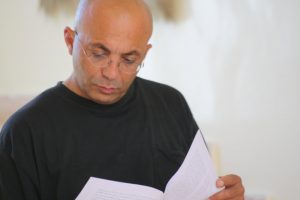 Yearnings of Immigration and Its Agony
Yearnings of Immigration and Its Agony
Identity formulation through experiencing: “distances by traveling” and “distances by departing”
In 1851, the first Palestinian man arrived in Brazil as an asylum seeker following a harsh long journey. He was probably carried by a cargo ship from Haifa Port to Marseille, then by another to Rio de Janeiro. In the same year, Palestinian merchants participated in an exhibition in Chicago/ USA and showcased middle-eastern antiques produced in the Holy Land.
In the last decade, death boats in the Mediterranean have reaped the lives of thousands of people escaping wars in Iraq, Syria and Gaza. Immigration in Palestine started in the 20th century by young people escaping to western countries to dodge forced military service imposed by the Ottoman Empire in WWI World, while tens of thousands of Palestinians found themselves forced to leave their cities and villages to dwell in refugee camps that are still existing.
I worked on a drama with teachers that arose from this complex and multifaceted historical context. A subject that influences and is influenced by people’s lives. Traveling between different geographies has changed our perception of identity through deconstructing and reexamining it. In light of this, the drama that I worked on was able to explore the concepts of place, distance, the Other, in their relation to people’s fate. We explored the meaning of identity as a “cultural and historical definition of the individual or group of people”, and as an individual’s identification card (passport) and the relation between both.
Wasim Kurdi – Palestine, is a poet, writer and practitioner in the field of Drama in Education. He runs the position of the Director of the Educational Research and Development Programme/A.M. Qattan Foundation. He worked as the Managing Editor of Al-Kateb Magazine, and is currently the Chief Editor of Ru’a Tarbawiyya periodic educational magazine and a Referee at NATD Journal, published by the National Association for Teaching of Drama. He has four poetry collections. He also wrote four lyrical dance performances produced by Al-Funoun Dance Troupe and The Edward Said National Conservatory of Music. He has several published studies and books in the field of Drama and Education such as “The Burst of Words”, “Art Education in School Teaching”, and “Men under the Sun: Presence and Absence of Text”. He presented in several conferences including IDIERI (The International Drama in Education Research Institute Conference) in Singapore in 2015 and the NYU Forum on Educational Theatre in 2016. Some of his areas of research interest include human practice from artistic production to aesthetic perception and drama as a context for exploring knowledge and artistic inspiration.
New Zealand Panel
Professor Janinka Greenwood
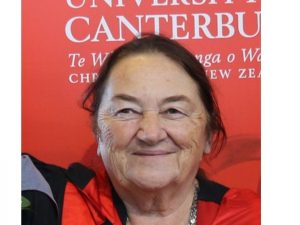 Janinka Greenwood is Professor of Education at the University of Canterbury, and Director of the Research Lab for Creativity and Change. Her current research focuses on teacher education and the development of criticality and the processes of change. She has a long-standing engagement with the uses for arts for learning and with arts-based research, and strong interests in learning communities, cultural difference, post-colonialisms and practice-based research methodologies.
Janinka Greenwood is Professor of Education at the University of Canterbury, and Director of the Research Lab for Creativity and Change. Her current research focuses on teacher education and the development of criticality and the processes of change. She has a long-standing engagement with the uses for arts for learning and with arts-based research, and strong interests in learning communities, cultural difference, post-colonialisms and practice-based research methodologies.
Dr Tracey- Lynne Cody
 Tracey-Lynne is an experienced drama educator, working in initial teacher education and drama education at Massey University. Her research interests include drama pedagogy and practice in school and applied theatre settings, culturally-responsive practice, and arts education for social and emotional well-being. Tracey-Lynne is an experienced director and performer – most recently directing Among Strangers, a production of a trilogy of Angie Farrow’s latest works at BATS theatre and Centrepoint Theatre in 2017.
Tracey-Lynne is an experienced drama educator, working in initial teacher education and drama education at Massey University. Her research interests include drama pedagogy and practice in school and applied theatre settings, culturally-responsive practice, and arts education for social and emotional well-being. Tracey-Lynne is an experienced director and performer – most recently directing Among Strangers, a production of a trilogy of Angie Farrow’s latest works at BATS theatre and Centrepoint Theatre in 2017.
Christian Penny
Christian led the Master of Theatre Arts in Directing programme, which is co-delivered jointly by Toi Whakaari: NZ Drama School and the Theatre Programme of Victoria University of Wellington since 2002. He has worked in a range of fields developing new New Zealand theatre works ranging from plays, devised works, community theatre projects and most recently Opera. He is the co-founder of the Auckland theatre company Theatre at Large (1990) and the New Zealand Playback Theatre Summer School which he has taught for twelve years. Christian is also a graduate of the 2009 Leadership New Zealand programme.
Jo Randerson
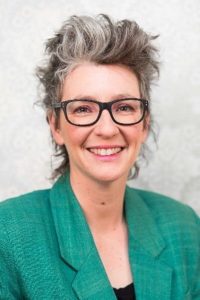 Writer and theatre-maker Jo Randerson is the founder and artistic director of Barbarian Productions. Recent theatre works include Sing It To My Face, Political Cuts and Grand Opening. Awards include the Robert Burns Fellowship, Arts Foundation New Generation Award and the Bruce Mason Award for playwrighting. Jo collaborates internationally with visual artists, theatre makers and activists, most recently in Paris, Moscow and Istanbul with Swedish visual artists Goldin+Senneby. The Spit Children premiered at Antwerp’s largest youth theatre HETPALEIS in May 2014. She teaches at Massey University, Toi Whakaari and Victoria University, and her new work Soft ‘N Hard is touring New Zealand
Writer and theatre-maker Jo Randerson is the founder and artistic director of Barbarian Productions. Recent theatre works include Sing It To My Face, Political Cuts and Grand Opening. Awards include the Robert Burns Fellowship, Arts Foundation New Generation Award and the Bruce Mason Award for playwrighting. Jo collaborates internationally with visual artists, theatre makers and activists, most recently in Paris, Moscow and Istanbul with Swedish visual artists Goldin+Senneby. The Spit Children premiered at Antwerp’s largest youth theatre HETPALEIS in May 2014. She teaches at Massey University, Toi Whakaari and Victoria University, and her new work Soft ‘N Hard is touring New Zealand
Associate Professor Sharon Mazer
 Sharon Mazer is Associate Professor of Theatre & Performance Studies at Auckland University of Technology. Perhaps best known for her book, Professional Wrestling: Sport and Spectacle (Mississippi 1998), her current research focuses on diverse aspects of theatre and performance in Aotearoa New Zealand. Recent publications include articles in Performance Research, Journal of Dramatic Theory & Criticism, Popular Entertainment Studies, and TDR. Forthcoming in 2018: I have loved me a man: the life and times of Mika (Auckland University Press) and The Intricate Art of Actually Caring . . . and Other New Zealand Plays (Seagull Books).
Sharon Mazer is Associate Professor of Theatre & Performance Studies at Auckland University of Technology. Perhaps best known for her book, Professional Wrestling: Sport and Spectacle (Mississippi 1998), her current research focuses on diverse aspects of theatre and performance in Aotearoa New Zealand. Recent publications include articles in Performance Research, Journal of Dramatic Theory & Criticism, Popular Entertainment Studies, and TDR. Forthcoming in 2018: I have loved me a man: the life and times of Mika (Auckland University Press) and The Intricate Art of Actually Caring . . . and Other New Zealand Plays (Seagull Books).
Emerging Scholars Panel
Paul Gardiner lectures in creativity and drama education in the Sydney School of Education and Social Work at the University of Sydney. He was a Ewing Postdoctoral Research Fellow in the School from 2015-2016 and is currently exploring the impact of creativity theory on teaching and learning in the arts. Paul is particularly interested in the interconnected concepts of knowledge, creativity, agency and engagement. He is also currently working on developing an interdisciplinary course in the Faculty of Arts and Social Sciences. Paul was Chief Examiner for NSW HSC Drama and was Director of Research on the Drama Australia Board 2015-2016. He is an experienced Secondary Drama and English teacher, having established and led successful Drama departments. He continues to deliver professional learning workshops for teachers and creative writing workshops with students and is currently writing a book on teaching playwriting and creativity, to be published by Bloomsbury/ Methuen Drama UK.
Natalie Lazaroo has a PhD from Griffith University (Brisbane), where she is currently lecturing. Her doctoral research was an ethnographic study of the community performance work of Vulcana Women’s Circus. Natalie’s research interests include applied and community performance, feminist theatre, physical theatre, disability studies and research methodologies.
Erika Piazzoli is a teacher educator, researcher and drama practitioner. She is a lecturer in Arts Education at Trinity College Dublin, The University of Dublin, where she coordinates the Master in Education (M.Ed.) programme and teaches within the Drama in Education and the Language Education strands of the Master’s programme. She is also Research Fellow (Adjunct) at Griffith University, Brisbane (Australia).
Dirk J. Rodricks (he/him) is queer/khush Desi with ancestors from the southern part of India. A PhD Candidate in Critical Studies at the Ontario Institute for Studies in Education (University of Toronto), Dirk is completing his dissertation under the supervision of Distinguished Professor Dr. Kathleen Gallagher. He also holds a BA (magna cum laude) in Theatre and a MEd in Higher Education from the University of Vermont. Dirk has co-authored a monograph on critical race theory, contributed chapters to edited volumes on postsecondary campus ecologies, critical youth pedagogies, and creativity education, and has published with RiDE: The Journal of Applied Theatre and Performance and Youth Theatre Journal. His forthcoming work can be seen in Qualitative Inquiry and the International Journal for Qualitative Studies in Education and he is co-editing the upcoming RiDE issue: On Access in Applied Theatre and Drama Education (Vol. 23, Issue 3). Committed to learning across difference and doing de/colonial applied drama research with his ethno-racial and queer communities, Dirk is grateful for the opportunity to be a visitor to this land.
Sarah Woodland is a researcher, practitioner and educator in arts, theatre and performance. She has over 20 years’ experience in the arts and cultural sectors in Australia and the UK, with a particular focus on socially engaged and participatory practices and research. From 2001- 2004, Sarah was a member of acclaimed prison theatre company, Geese Theatre UK. She then spent over 10 years at Griffith University undertaking arts research, teaching Contemporary and Applied Theatre, and leading university-industry partnerships and placements for students through the award-winning Learning and Teaching program, Theatre Scope. In 2016, Sarah was appointed as Research Fellow on the Queensland Conservatorium Research Centre’s ARC Linkage project, Creative Barkly: Sustaining the Arts and Culture Sector in Remote Australia. She is passionate about her practice-led research in prisons, having delivered participatory drama with women at Brisbane Women’s Correctional Centre since 2011.
